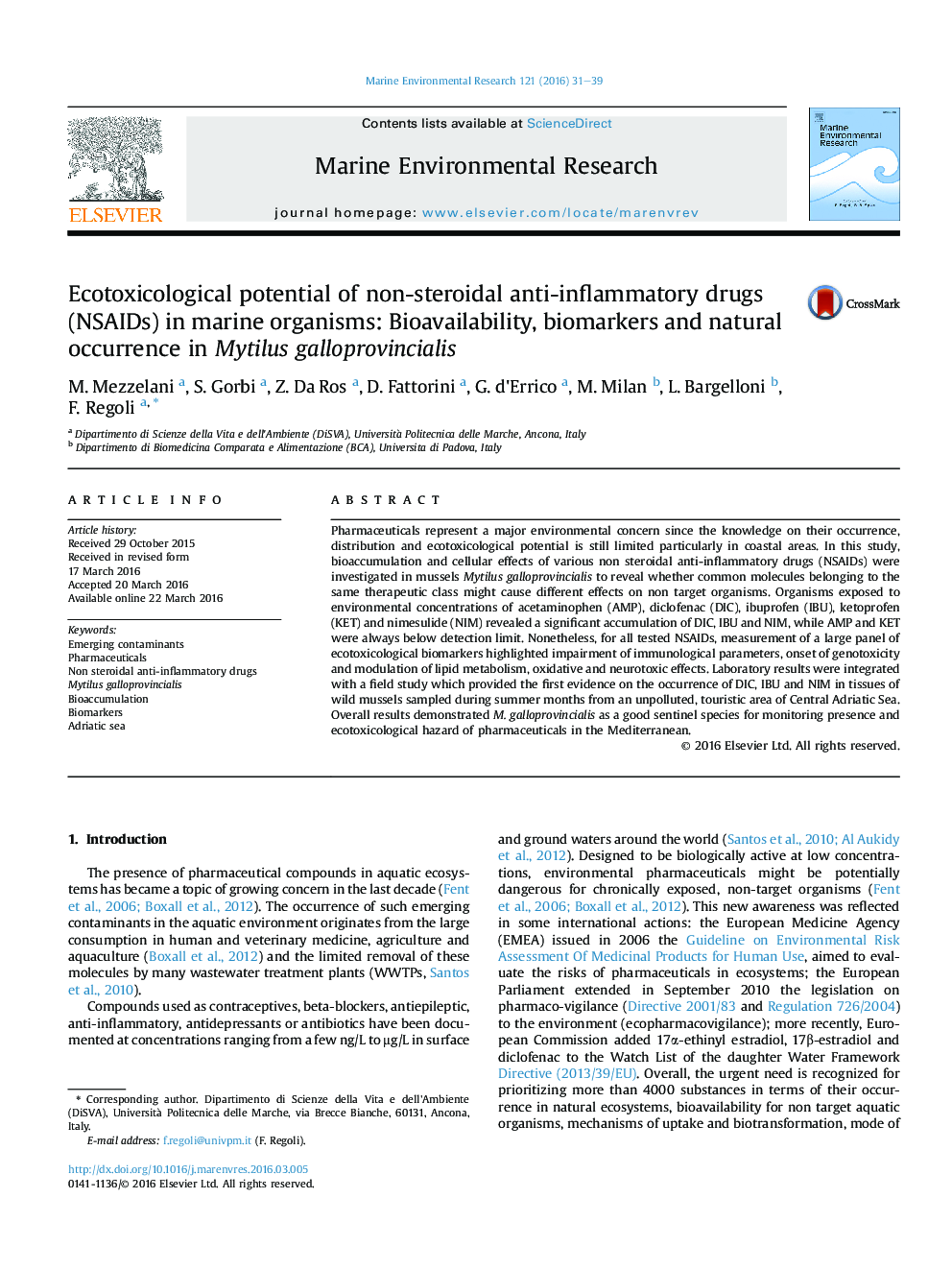| Article ID | Journal | Published Year | Pages | File Type |
|---|---|---|---|---|
| 4550566 | Marine Environmental Research | 2016 | 9 Pages |
•Bioaccumulation and ecotoxicological effects of NSAIDs were investigated in mussels.•Significant accumulation occurred for diclofenac, ibuprofen, nimesulide•Tissue concentrations did not vary for acetaminophen and ketoprofen.•All NSAIDs determined immunological, biochemical and cellular alterations in mussels.•DIC, IBU and NIM occurred in tissues of wild mussels from Adriatic Sea.
Pharmaceuticals represent a major environmental concern since the knowledge on their occurrence, distribution and ecotoxicological potential is still limited particularly in coastal areas. In this study, bioaccumulation and cellular effects of various non steroidal anti-inflammatory drugs (NSAIDs) were investigated in mussels Mytilus galloprovincialis to reveal whether common molecules belonging to the same therapeutic class might cause different effects on non target organisms. Organisms exposed to environmental concentrations of acetaminophen (AMP), diclofenac (DIC), ibuprofen (IBU), ketoprofen (KET) and nimesulide (NIM) revealed a significant accumulation of DIC, IBU and NIM, while AMP and KET were always below detection limit. Nonetheless, for all tested NSAIDs, measurement of a large panel of ecotoxicological biomarkers highlighted impairment of immunological parameters, onset of genotoxicity and modulation of lipid metabolism, oxidative and neurotoxic effects. Laboratory results were integrated with a field study which provided the first evidence on the occurrence of DIC, IBU and NIM in tissues of wild mussels sampled during summer months from an unpolluted, touristic area of Central Adriatic Sea. Overall results demonstrated M. galloprovincialis as a good sentinel species for monitoring presence and ecotoxicological hazard of pharmaceuticals in the Mediterranean.
